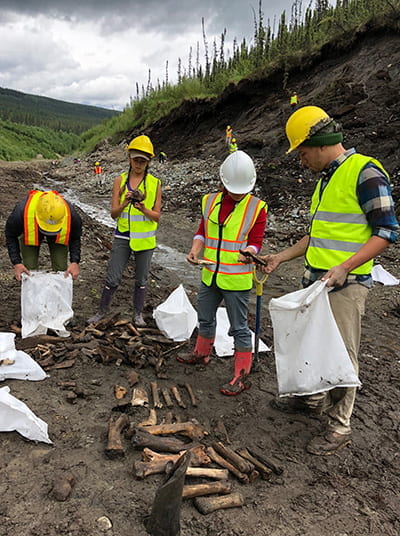
They got cold and wet, slogged through mud and muck, were eaten alive by mosquitoes, and they all agreed it was one of the best experiences of their lives. Thirteen UC Santa Cruz undergraduates led by Beth Shapiro, professor of ecology and evolutionary biology, traveled 2,800 miles through Alaska and the Yukon territory this summer, doing field work at research sites and studying the effects of climate change in the far north.
“Hands down the best experience I’ve had to date,” said Molly Cassatt-Johnstone. “We’d been learning about all these things in the classroom, and then we actually got to go and see how climate change is affecting the land and people in the Arctic.”
“It’s one thing to read about climate change and how the ice is melting in the Arctic, but it’s another thing to go out and see it,” said Christopher Garrison. “You see how real it is when the roads are buckling and full of cracks and dips because the permafrost is melting under the road.”
[ Read more. ]